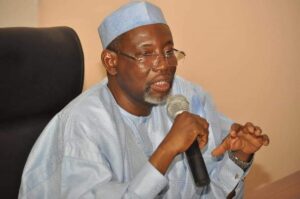The 109 Integrated Farm Estates in national food security
By Salisu Na’inna
President Muhammadu Buhari, the Chairman of the National Food Security Council, has laudably approved the establishment of one Integrated Farm Estate ( IFE) in each of the 109 Senatorial Districts in the country.
The Integrated Farm Estate is an advanced equivalent of the defunct Farm Settlements initiated in the late 1950s during the colonial era and completed by the three regional governments early in the 1960s.
There is no doubt that the directive by the President to the Nigerian Agricultural Land Development Authority (NALDA) to establish an Integrated Farm Estate (IFE) in each of the 109 senatorial districts in the country is yet another bold move by the APC-led administation to enhance our national food security and nutrition.
The purposes of the Estates are boosting food production, creation of jobs, enhancing national food security and the practical pursuit of economic diversification using agriculture as the strongest pillar to achieve and sustain that national desire.
The Nigerian Agricultural Land Development Authority (NALDA) which has the mandate of establishing the Estates nationwide has already established the first one in Katsina state.
The Authority said in a post on its website, “in our quest to harness the vast potentials of the Nigerian Land, we are tasked with the responsibility of developing the land in rural areas through the establishment of Integrated Farm Estates, to increase our agricultural output as a nation.”
Although some commentators may rate the farm estate in Sujudu village of Daura emirate, Katsina state, as relatively small at 100 acres, nevertheless it is significant as a model of the concept in practice. It is segmented into different portions for varied agricultural activities: a corner is devoted to crop production while another part is for livestock with equipment for processing and the packaging of end products like beef and mutton, milk , fish and poultry products. Thus the small 100-acre IFE in Sujudu has presented a picture of how the full-scale, 1,000 hectares or larger version of the IFE should be.
I can see that by the time the full-scale IFEs of 1,000 hectares or larger are established, each would have a capacity to engage a population which can be equivalent to that of a medium-sized town in all-season crop production if it is located close to water bodies; it will have a large poultry section with up to a million birds; fish ponds with over 2,000,000 fish at different stages of growth; a section for both diary and beef cattle; a large goattery; and where appropriate, rabbit pens, with at least 30,000 animals. If it is adjacent to a woodland with a blooming forest cover, a bee apiary for honey harvesting will be part of the package.
However, it may be useful for NALDA to set some hectares aside in each of the 109 IFEs to plant trees or horticultural crops for fruits like citrus, guava, pineapple, banana, date palm, mangoes, pawpaw and vegetables that can improve fruits intake among Nigerians.
The 109 IFEs can surely contribute in reducing the rate and extent of malnutrition in Nigeria which the Unicef said is caused by many underlying factors including, “poverty, inadequate food production, inadequate food intake, ignorance and uneven distribution of food, poor food preservation techniques, improper preparation of foods, food restrictions and taboos, and poor sanitation.”
When fully functional as envisioned by the President Muhammadu Buhari-led administation, items from the IFEs, especially meat, fish, eggs and other poultry products can contribute in reducing child malnutrition. International agencies reported; and the Federal Ministry of Health did not refute the assertion that, “in Nigeria 37 per cent of children, or 6 million children, are stunted (chronically malnourished or low height for age), more than half of them severely. In addition, 18 per cent of children suffer from wasting (acutely malnourished or low weight for height), half of them severely.”
The model farm estate in Sujudu has a school, a clinic and 120 units of one-bedroom houses to accommodate farm households that are permanently resident and working on the farm estate. This implies that larger IFEs will have more housing units, bigger clinics and schools with more classrooms to cater for the children of farm workers, extension services providers and marketers, among others.
The name of NALDA, which was revived by the APC-led administation of President Muhammadu Buhari, will be written boldly in gold when it achieves its ambitions of implementing the 109 IFEs project and its goal “to attract, encourage and empower 1000 farmers from each of the 774 LGAs in Nigeria anually, cutting accross the entire Agricultural Value Chain.”
With strong will and determination driven by patriotism, both goals and more, are achievable.




